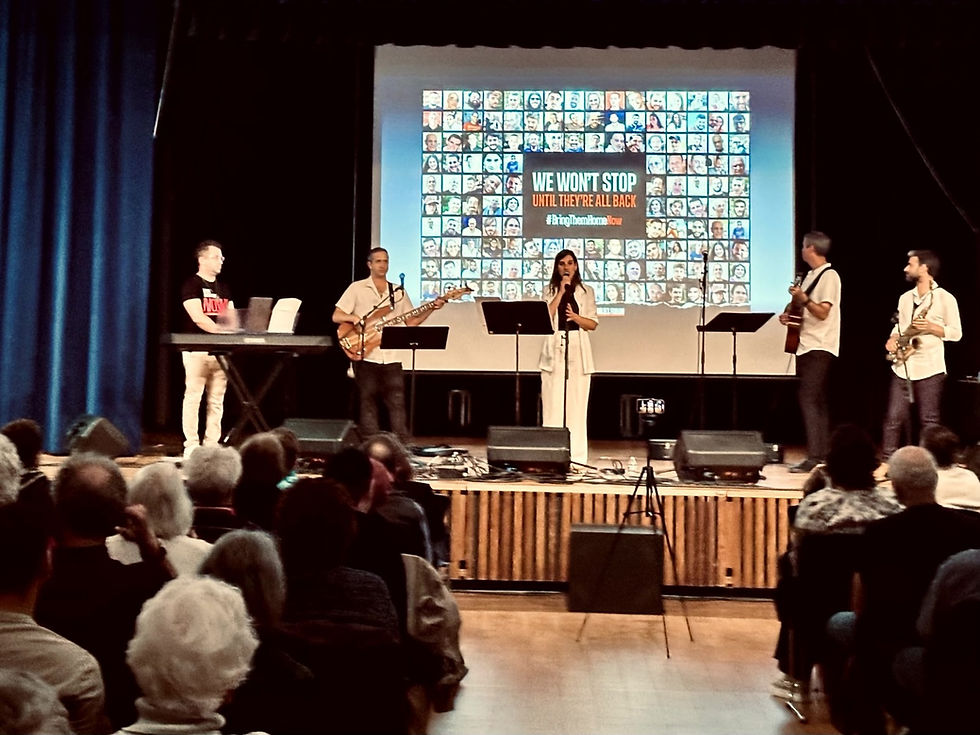Rebuilding Border Communities: Dror Israel Educators Answer the Call
- Carmi Tint
- Mar 16, 2025
- 3 min read
Updated: Mar 17, 2025

As Israel’s northern and southern border communities work to rebuild, they face a critical gap in young adult leadership. An estimated 50% of young adults who lived in these areas before the war have indicated they do not plan to return, leaving a void in both community life and essential professions - especially in education and youth programming, where young adults traditionally play a key role. Dror Israel trained educators are stepping up, moving in groups – Educators Kibbutzim – to these communities to help them heal, renew, and rebuild.
Despite this trend, Dror Israel’s initiative to bring young educators to these hard-hit areas is growing rapidly, with a waiting list of participants eager to take part. So far, 40 educators have moved to the Gaza border area, living in two cohorts in the Sha’ar HaNegev and Eshkol regions. An additional cohort has relocated to the north, with 60 additional young educators preparing to move in the coming months to Kiryat Shmona, the Western Galilee, and Ma’ale Yosef.

A Personal Commitment to Rebuilding
Two of the first young educators to make the move were Maya and Geffen, originally from Kfar Saba. “I made connections with the Eshkol community while working with them during their evacuation to the Dead Sea area,” Geffen shared. “When they started talking about going home, they asked, ‘You’re coming with us, right?’ and I heard myself say, ‘Yes.’ That was the moment I realized I was serious—I wanted to continue with them.” Maya, who had been volunteering with evacuees in Eilat, had a similar realization. “I started thinking about moving to Eshkol, but I didn’t want to do it alone. I spoke to Geffen, and she was interested too. We started imagining what it could look like, and Dror Israel stepped in to turn it into a full-fledged program.”

More Than Just a Job—Building a Future
These young educators are not just filling critical roles as teachers, social workers, therapists, and informal educators—they are becoming part of the community. On Kibbutz Re’im, for example, they regularly meet with senior citizens for games and conversations, bridging generations and strengthening social bonds. However, moving to these areas comes with its challenges. “It’s difficult to move somewhere that doesn’t have a young adult community—no nightlife, few social activities,” explains Hodaya, who recently relocated. “That’s why the cohort structure is so important.”
Living together as a group, the educators support each other through the emotional weight of working with traumatized children. They receive ongoing psychological consultation and mentorship from Dror Israel facilitators, helping them navigate the difficult but deeply meaningful work of supporting youth in these recovering communities.

Looking Ahead
This year-long program is not just about temporary relief—it’s about long-term renewal. As the year progresses, program facilitators will work with participants to evaluate next steps—whether extending their time in the program, settling permanently in the region, or helping launch additional cohorts in other communities.
For Nadav, originally from Kiryat Shmona, the choice was clear. “At first, I was interested in joining the Western Negev cohort. But once I heard that educators were also moving to the north, I knew I had to join them. There are so many communities that need rebuilding, but for me, it starts here. This is my home.”
In the words of Chen, a Dror Israel educator facilitating the initiative: "History gives each generation impossible challenges—this is how our generation is answering the call."



Comments